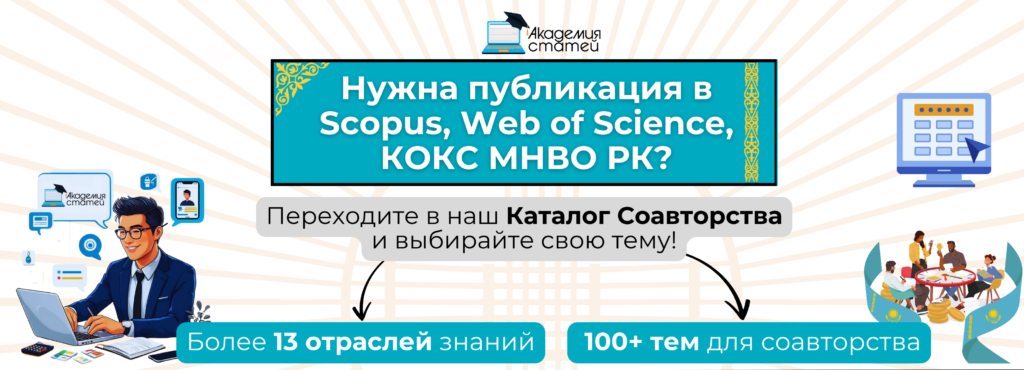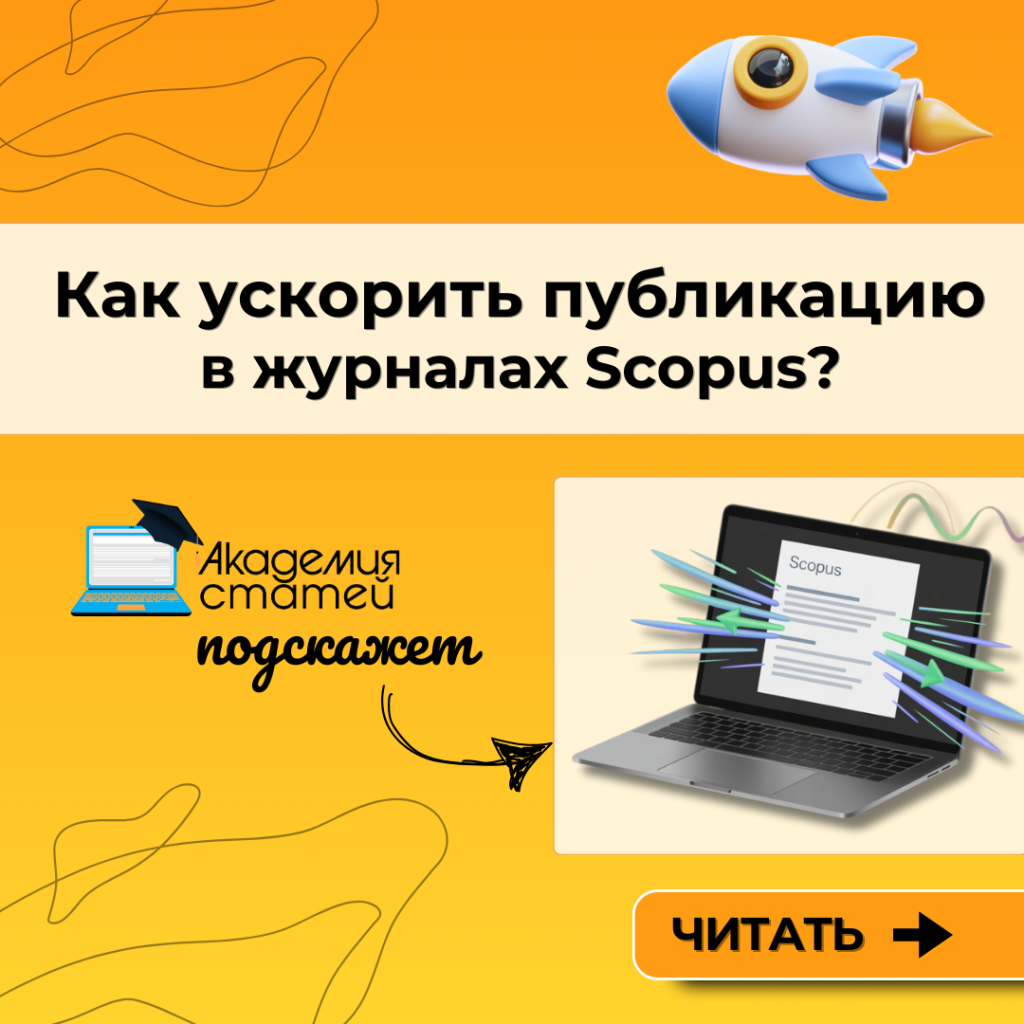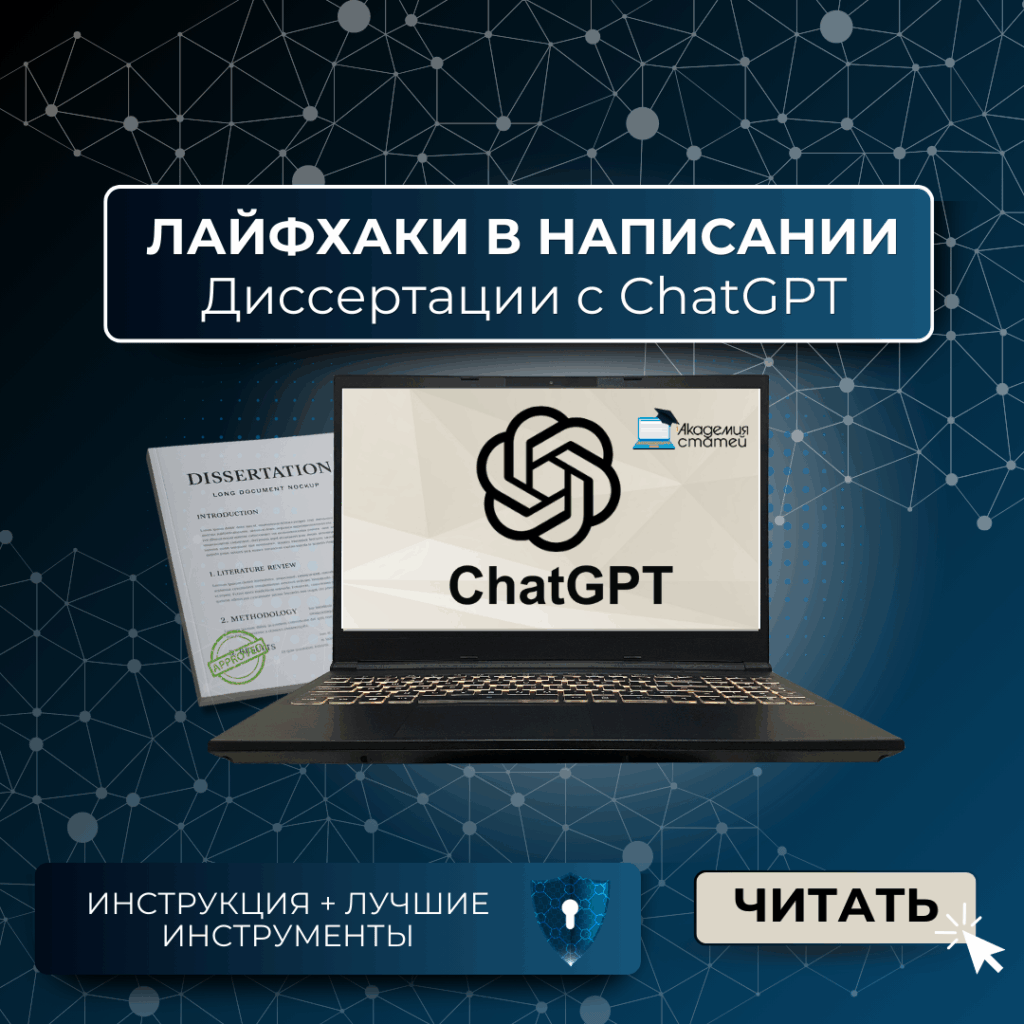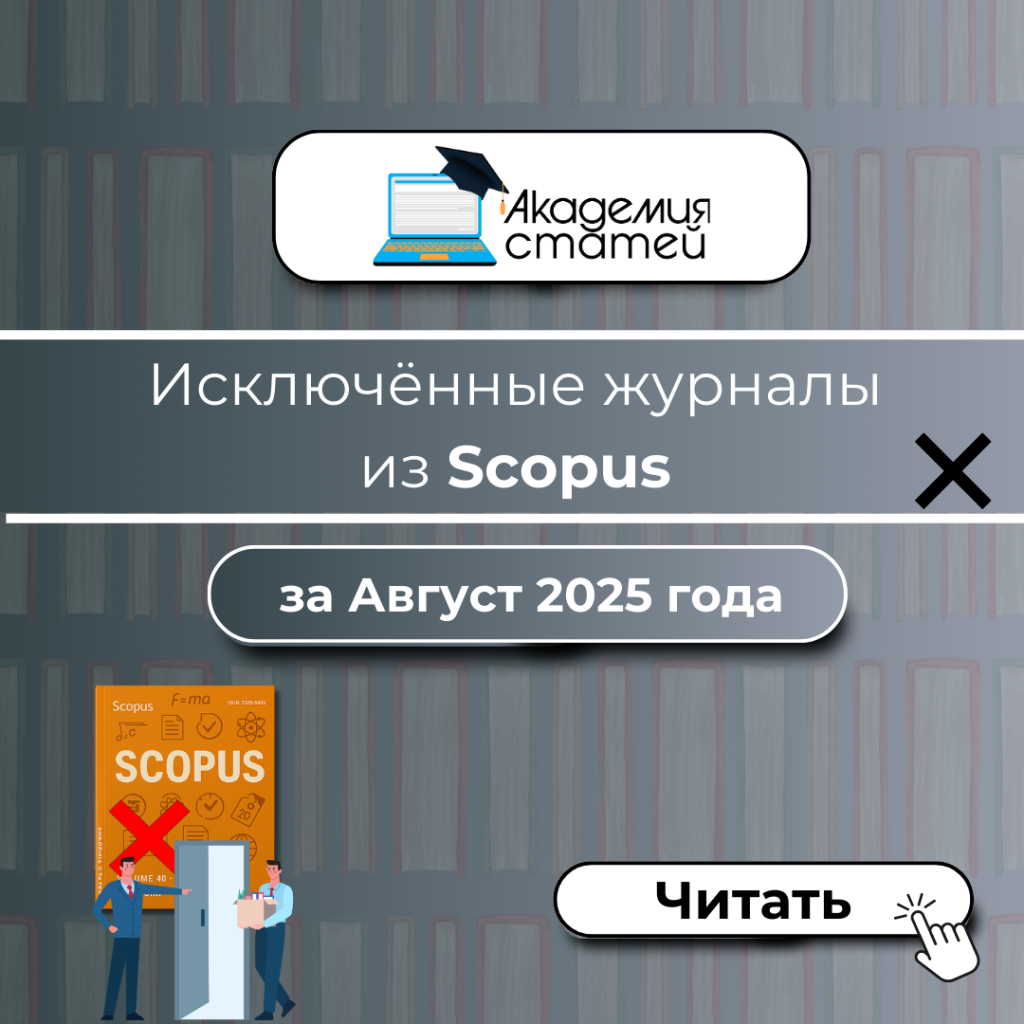Hello, dear colleagues!
This is Vasily Malets, director of the Academy of Articles and author of the column “Journals that will soon lose their Scopus indexing»!
Today we publish the second issue of our column for 2025. It is becoming increasingly popular among the scientific community.
As of today, 21 of the 27 journals we wrote about earlier have already been officially excluded from the Scopus database.
We're constantly improving our verification methods, analyzing more and more publications to promptly warn you of risks and help you save money, time, and stress.
This time, our list includes five journals, four of which have high percentile scores. They have already published approximately 800 articles by Kazakhstani scientists.
As a reminder, we have a table of applicants where you can find all the journals I wrote about earlier and their current status.
Link to the journal in Scopus: https://www.scopus.com/sourceid/21101081861
Link to the journal's website: https://journals.bilpubgroup.com/index.php/fls
The first journal became popular among Kazakhstani scientists about a year ago, especially after it received a high percentile (50+) in May 2024.
He maintained quality standards: the review process took an average of 4-5 months, was not too rigorous, but was of average quality.
The publication was owned by Academic Publishing, but was sold to Bilingual Publishing Group in September 2024. Since then, the journal has undergone dramatic changes to its policies: starting in December 2024, it sharply accelerated the acceptance of articles, offered significant discounts, and launched an aggressive marketing campaign to attract authors.
Magazine characteristics:
– Percentile: 50+ (Q2) – linguistics;
– Accepted into Scopus: 2022.
Publication cost: 1600$ (discounts of 20–50% were often provided).
Main violations:
📌 Reduction of review time: from 3 months to 2 weeks.
📌 Increase in the number of issues: from 3 in 2023 to 12 in 2025.
📌 Publication growth: from 60 to more than 300 per year.
📌 Self-citation level: more than 20%.
Kazakhstani authors: 300+ (and counting).
Status: is being actively indexed, but will soon be checked by the system Radar, then transferred to CSAB.
Probability of exclusion from Scopus: 100%.
Risk of article de-indexing: low (most are in line with the journal's profile).
Link to the journal in Scopus: https://www.scopus.com/sourceid/21101057630
Link to the journal's website: https://ijirss.com/index.php/ijirss
Very popular among Kazakhstani researchers due to its high percentile and multidisciplinary nature.
The journal published high-quality articles in 2022–2024.
However, in December 2024, he began sending out mass invitations to publish and sharply increased his volume. In 2025, the number of Kazakhstani articles in the journal increased sharply.
Magazine characteristics:
– Percentile: 50+ (Q2) – multidisciplinary.
– Accepted into Scopus: 2021.
Publication cost: 1200$.
Main violations:
📌 Increase in the number of articles (3 times more than in 2024).
📌 Reduction of review time: from 6–8 months to 1.5.
📌 Decrease in the quality of publications.
Kazakhstani authors: 325+ (and growing).
Status: actively indexed, but will be checked by Radar and CSAB.
Probability of exclusion from Scopus: 100%
Risk of de-indexation: 50% for 2025 articles.
Link to the journal in Scopus: https://www.scopus.com/sourceid/21100468901
Link to the journal's website: https://recyt.fecyt.es/index.php/retos
A second-quartile journal with a high percentile. In 2024, it suddenly became predatory and was subject to CSAB review in December.
Surprisingly, he passed the audit, even though his performance indicators suggested he shouldn't have. There are suspicions of corruption.
Magazine characteristics:
– Percentile: 50+ (Q2) – Education and Physical Therapy.
– Accepted into Scopus: 2017.
Publication cost: 265 euros.
Main violations:
📌 Published within one month.
📌 Increase in releases: from 4 (2023) to 11 (2024), 6 — for the beginning of 2025.
📌 Self-citation: about 60%.
Kazakhstani authors: 115+.
Status: is actively indexed, but will soon be re-checked and excluded.
Probability of exclusion: 100%.
Risk of de-indexation: low (journals that have passed at least one review rarely de-index articles).
Link to the journal in Scopus: https://www.scopus.com/sourceid/21101041842
Link to the journal's website: https://edupij.com/
A second-quartile journal with a 70+ percentile. It had every chance of rising to Q1 in 2025.
Previously published high-quality articles in the field of education, adhering to strict guidelines.
Since January 2025, he began sending out mass invitations with promises of publication within 1–2 months, which attracted the interest of Kazakhstani scientists.
Magazine characteristics:
– Percentile: 70+ (Q2) – education.
– Accepted into Scopus: 2021.
Publication cost: 1100 euros.
Main violations:
📌 Publication growth: 3 times more than in 2024;
📌 Reduction of publication timeframes: from 6 months to 1–2;
📌 Decrease in quality: superficial articles of 5-6 pages;
Kazakhstani authors: 25+ (number growing).
Status: actively indexed, but will be checked by Radar and CSAB.
Probability of exclusion: 100%
Risk of de-indexation: average.
Link to the journal in Scopus: https://www.scopus.com/sourceid/21101041842
Link to the journal's website: https://www.jisem-journal.com/index.php/journal
The journal was accepted into Scopus in 2024. In the first year, it published over 200 articles. In 2025, it published over 1,000.
The editorial board began accepting articles en masse without review, offering “quick publication.”
Magazine characteristics:
– Q4 — information systems.
– Accepted into Scopus: 2024.
Publication cost: 550 euros.
Main violations:
📌 More than 20 issues for 2025.
📌 1000+ articles.
📌 Loss of thematic relevance.
📌 Quality: low, some materials are AI-generated without editing.
Kazakhstani authors: 0.
Status: While it's still active (new), most articles are indexed. But it will soon be placed on hold and removed.
Probability of exclusion: 100%
Risk of de-indexation: 100%
Conclusions:
Today, we reviewed five journals, four of which have published approximately 800 articles by Kazakhstani scientists—approximately more than 150 authors. This is a significant number, and the exclusion of these journals could have serious consequences for Kazakhstan's scientific community.
As you can see, 3 of these journals are in the second quartile – and this does not prevent them from becoming predatory.
If you thought Q2 journals were safer, you're wrong.
Any publication may be excluded from Scopus if it violates editorial policy and quality standards.
Dear colleagues from Kazakhstan, I would like to issue a special warning:
I understand that the offer of quick and "hassle-free" publication may seem tempting.
But your legislation clearly states that publications in journals excluded from Scopus are not counted.
Publish only in journals where you are confident that you will be able to achieve your goals before they are excluded.
Carefully analyze journals before submitting articles, check their reputation to avoid consequences.
If you need professional help in choosing a reliable journal or publishing a scientific article, Academy of Articles will be happy to help you.
Sincerely,
Vasily Malets, Director of the Academy of Articles
Join my personal LinkedIn!
There I share relevant and useful information about scientific publications.
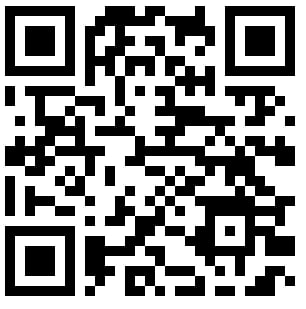
Scan the QR code

